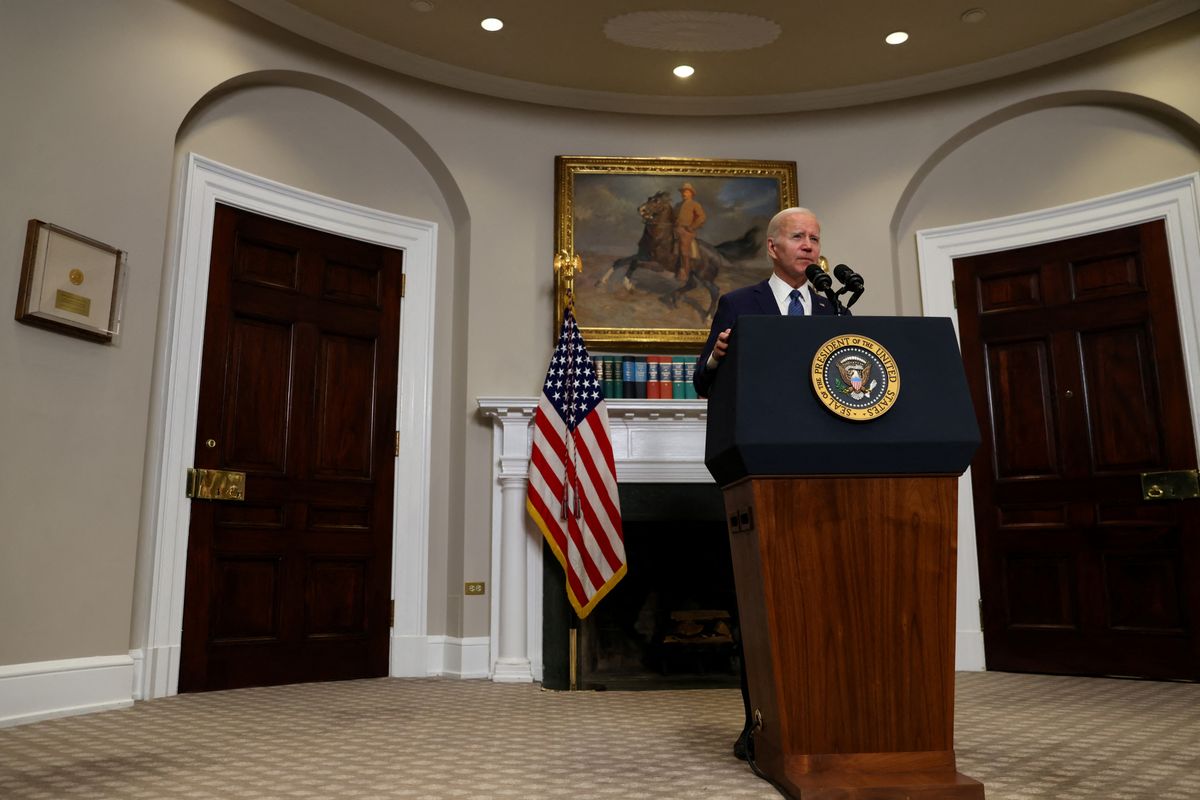Biden and McCarthy agree on suspending the US debt ceiling
Picture this: the world's largest economy is stuck in a full-blown financial disaster.

A few minutes every morning is all you need.
Stay up to date on the world's Headlines and Human Stories. It's fun, it's factual, it's fluff-free.
The backstory: So, you know how we have a credit limit on our cards? Well, the US government has something similar called the debt ceiling. It's like a cap on how much money it can borrow. Now, when the government spends more than it makes (which, let's face it, happens quite often), it needs to borrow money to cover the gap. But if it hits that debt ceiling, bam, it's like hitting a financial roadblock. No more borrowing unless the limit is raised. And the US debt ceiling is already at a mind-boggling US$31.4 trillion.
The thing is, when the US hits the ceiling, Congress has to vote to either suspend or raise it to avoid a default. This is usually when party negotiations over the country’s spending start, and the debt ceiling limit has often been used for either side to get certain things changed about the government’s budget.
More recently: In January, the US slammed right into that debt ceiling. Treasury Secretary Janet Yellen even sounded the alarm, basically saying, "Hey, if we don't raise that spending limit by June 5, it's gonna be a cash apocalypse." Essentially, if the government can’t agree to either raise or suspend the debt ceiling to keep paying its bills, it will lead to a catastrophic default.
Picture this: the world's largest economy is stuck in a full-blown financial disaster. Uncle Sam can’t pay the bills, from military salaries to Granny's retirement benefits. How bad could it possibly be? Well, if the country defaults on its debts, it will leave bondholders high and dry. And, guess who holds a staggering US$2 trillion of US debt? China and Japan. So if the US defaults, we're not just talking about a US financial crisis but ripples that would affect the entire world.
Last week, the rating agency Fitch gave the US credit a serious stink-eye and put it on "Rating Watch Negative." That's like a warning sign saying that its credit might get a major downgrade because of the deadlock. Why does that matter? Well, if it happens, Washington will be stuck paying off its debt with crazy high-interest rates.
The development: Now, President Joe Biden and House Speaker Kevin McCarthy have just struck an agreement to hit the brakes on the debt ceiling until January 2025. They're dead set on preventing a federal default and a potential global economic meltdown.
Now, this agreement isn't just about the debt limit. Nope, it's a whopping 99-page document that covers a bunch of stuff. They're tackling different important issues, like giving energy projects permits, adding work requirements to some federal aid programs and more. It's a big ol' bundle of policies and ideas.
But here's the thing – time is of the essence. If Congress doesn't give this deal the thumbs up by June 5, the US Treasury could be in a sticky situation, strapped for cash. Both Biden and McCarthy have said they think they’ll have enough votes from both Republicans and Democrats to pass it through, but not everyone’s on board. The House is scheduled to vote on Wednesday, and the Senate will follow suit before June 5.
Key comments:
"Today’s agreement makes urgent progress toward preserving our nation’s full faith and credit and a much-needed step toward getting its financial house in order," said Senate Republican Leader Mitch McConnell.
“The agreement prevents the worst possible crisis – a default – for the first time in our nation’s history,” said US President Joe Biden. “Takes the threat of a catastrophic default off the table.”
“I’m not happy with some of the things I’m hearing about,” said Representative Pramila Jayapal, who chairs the Congressional Progressive Caucus, to CNN’s State of the Union. “We kept the student debt responsibility that we have.”
"It has historic reductions in spending, consequential reforms that will lift people out of poverty into the workforce, rein in government overreach - there are no new taxes, no new government programs," said Republican House Speaker Kevin McCarthy.
“We believe risks have risen that the debt limit will not be raised or suspended before the X-date and consequently that the government could begin to miss payments on some of its obligations,” said the rating agency Fitch in a statement last week.




Comments ()